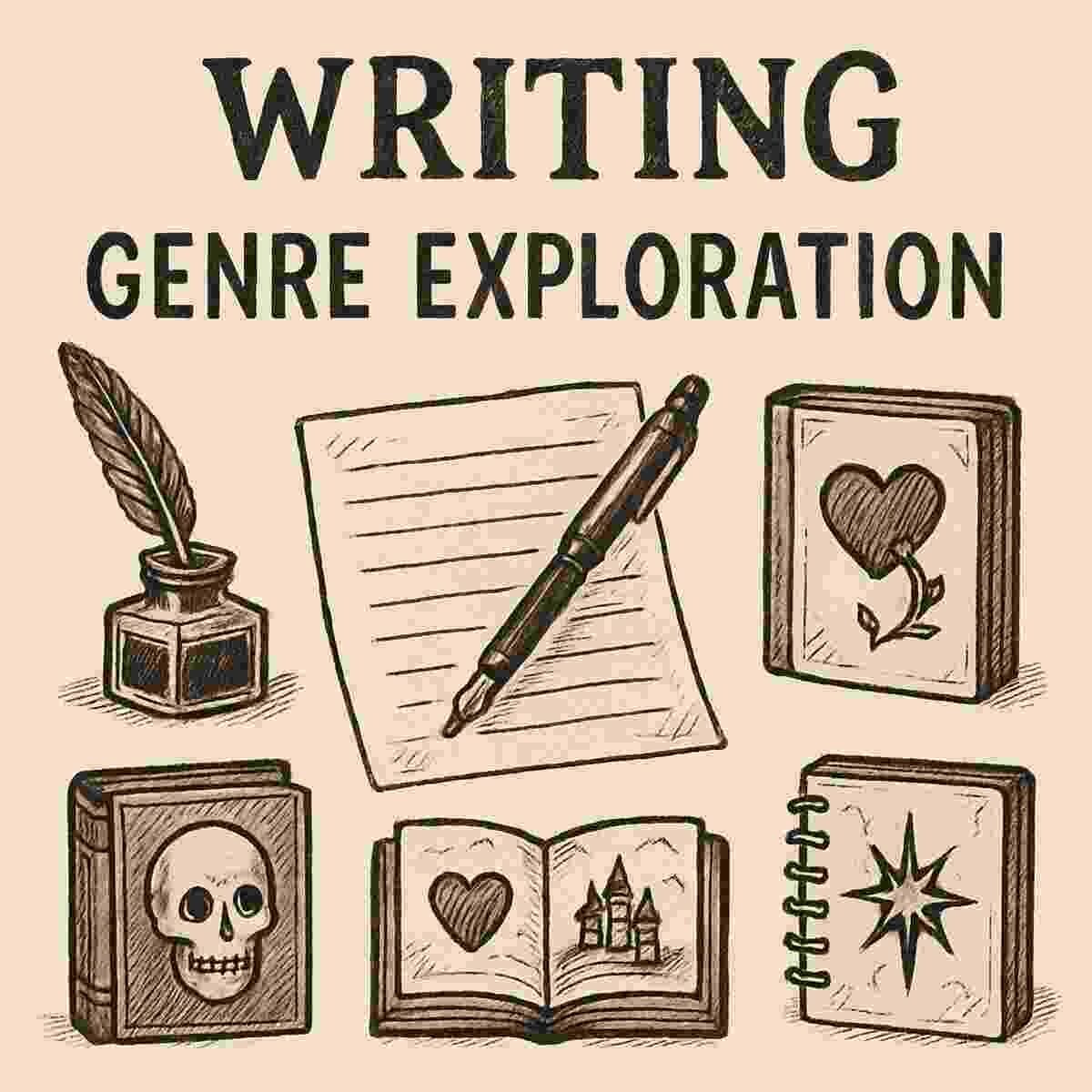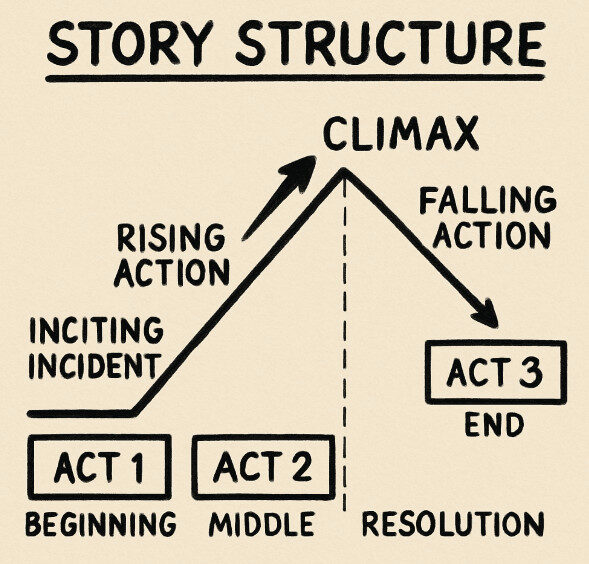Play Win: Tips for Competitive Success

If you’ve ever heard the phrase “play stupid games, win stupid prizes,” you know that not all games are worth playing. However, when it comes to the game of writing, the rewards are anything but trivial. Whether you’re crafting the next great novel, creating compelling content, or tackling academic papers, playing to win in the writing arena means honing your skills and outsmarting the competition. Here’s how you can level up your writing game with some practical tips and tricks. Learn the best info about TheSports247.
Before you can play to win, you need to know what game you’re playing. Each writing genre has its own unique rules, expectations, and audience preferences. As an aspiring novelist, understanding the conventions of your chosen genre—be it mystery, romance, or science fiction—will help you craft a story that resonates with readers. For content marketers, knowing your audience’s preferences will guide the tone and style of your content, ensuring engagement and connection. Graduate students need to familiarize themselves with the academic standards and expectations of their field to communicate effectively with peers and professors.
Tip 1: Study the Masters
Dive into the works of successful authors, content creators, or academic writers in your field. Analyze their techniques and dissect what makes their work stand out. Consider how they construct sentences, develop characters, and build narratives. Jot down notes on their use of language, structure, and storytelling devices. This analysis will give you insights into their craft and inspire you to incorporate some of these techniques into your own writing.
Tip 2: Know the Audience
Understanding your audience is crucial in any genre. For novelists, this means knowing what readers expect from your genre and how to surprise them. Content marketers should delve into audience demographics and psychographics to tailor content that speaks directly to them. Academic writers must understand the scholarly community’s expectations, from the style of writing to the types of evidence considered credible. By knowing your audience, you can tailor your writing to meet their needs and expectations.
Tip 3: Genre-Specific Research
Each genre has its own set of rules and conventions that must be understood and respected. For novelists, this means reading extensively within your chosen genre and understanding its tropes and clichés. Content marketers should research market trends and consumer behavior relevant to their industry. Academic writers need to stay abreast of the latest research and methodologies in their field. This research will inform your writing and help you craft work that is both original and relevant.
Plot Your Path: Structure Matters

A well-structured piece of writing is like a well-played game: it has a clear beginning, middle, and end. For novelists, this means plotting a narrative arc that keeps readers engaged from the first page to the last. Content marketers should ensure their content flows logically, leading the reader seamlessly from introduction to conclusion. Academic writers must present their arguments clearly, with each point building on the last to form a cohesive whole.
Tip 4: Outline Like a Pro
Before you dive into writing, create an outline to serve as your roadmap. For novels, map out each chapter and the progression of your plot, ensuring that the narrative arc keeps readers hooked. For content, outline your main points and how they support your message, creating a logical flow that guides your audience through your content. For academic papers, structure your argument, decide where to include evidence and citations, and make sure each section contributes to your overall thesis.
Tip 5: Experiment with Structures
While traditional structures have their place, don’t be afraid to experiment with different formats. Novelists might try non-linear storytelling or multiple perspectives to add depth. Content marketers can use bullet points, lists, or infographics to break up text and engage readers. Academic writers can consider alternative formats like case studies or meta-analyses. Experimentation can lead to innovative writing that stands out in your genre.
Tip 6: Revise for Clarity
Once your outline is in place and the first draft is complete, focus on revising for clarity. Ensure that each section transitions smoothly into the next, maintaining a logical flow. Remove any redundant information or tangents that detract from your main message. Clarity in structure makes your writing more accessible and impactful, regardless of genre.
Develop Winning Characters: Engage Your Audience
Characters are the heart of any story. Whether they’re fictional protagonists, brand personas, or the subjects of your research, they need to be engaging and relatable. A well-developed character can turn a simple story into an unforgettable narrative, driving your plot and connecting with your audience on an emotional level.
Tip 7: Create Detailed Profiles
For novelists, spend time developing detailed character profiles. Consider their backstories, motivations, and how they change throughout the story. These profiles help you create multidimensional characters that feel real. Content marketers should develop personas to better understand their audience, tailoring content to address their needs and desires. Graduate students can benefit from profiling the key figures in their research, understanding their contributions and perspectives.
Tip 8: Use Real-Life Inspiration
Draw inspiration from real-life individuals to create authentic characters. Observe people around you, noting their habits, speech patterns, and quirks. For novelists, these observations can breathe life into fictional characters. Content marketers can gather insights from customer interactions or feedback. Academic writers might consider the historical context or personal experiences of individuals in their field of study. Real-life inspiration adds depth and relatability to your characters.
Tip 9: Test Your Characters
Put your characters in different situations to test their reactions and development. For novelists, this means writing scenes that challenge your characters and reveal their true nature. Content marketers can simulate customer journeys to predict responses to content. Academic writers might explore hypothetical scenarios to understand the implications of their research. Testing your characters ensures they are dynamic and capable of driving your narrative forward.
Dialogue: The Game-Changer
Great dialogue can elevate writing from good to great. It’s an essential tool for novelists, a persuasive device for marketers, and a way to present arguments in academic writing. Dialogue not only conveys information but also reveals character and advances the plot.
Tip 10: Practice Makes Perfect
Write dialogue regularly to improve your skills. For novelists, this means crafting conversations that reveal character, advance the plot, and sound natural. Content marketers can use dialogue to make content more relatable, such as through customer testimonials or interviews. Graduate students can focus on incorporating quotes and discussions seamlessly into their papers, ensuring that dialogue supports their arguments.
Tip 11: Listen and Learn
Pay attention to how people speak in real life. Note the nuances, slang, and rhythms of conversation. For novelists, authentic dialogue adds realism and depth to your characters. Content marketers can use this understanding to create relatable content that resonates with their audience. Academic writers can learn how to incorporate conversational elements into their writing to make complex ideas more accessible.
Tip 12: Edit for Impact
Once your dialogue is written, edit it for impact. Remove any unnecessary words or exchanges that don’t serve your purpose. Ensure that each line of dialogue contributes to character development or plot advancement. For content marketers and academic writers, this means making sure that dialogue enhances the overall message and clarity of your piece.
Keep It Simple: Clarity Is Key
No matter your writing goal, clarity is vital. Complex ideas should be broken down into simple, digestible parts. This not only makes your writing more accessible but also more impactful, ensuring your audience can easily understand and engage with your work.
Tip 13: Edit Ruthlessly
After completing your first draft, go back and simplify your language. Remove jargon, clarify your points, and ensure that each sentence serves a purpose. Reading your work aloud can help identify areas that need simplification, allowing you to hear awkward phrasing or unclear ideas. Ruthless editing results in concise, clear writing that communicates your message effectively.
Tip 14: Use Visual Aids
Enhance clarity by incorporating visual aids where appropriate. For content marketers, infographics or images can break up text and convey complex ideas simply. Academic writers might use charts or graphs to illustrate data points, making findings more digestible. Visual aids complement your writing and provide an alternative way for your audience to engage with your content.
Tip 15: Seek Feedback
Share your writing with peers or mentors to gain fresh perspectives on clarity. Constructive feedback can highlight areas where your writing is unclear or overly complex. Use this feedback to make revisions, ensuring your writing is as clear and impactful as possible. Feedback is an invaluable tool for improving clarity and effectiveness in your writing.
Exercises: Practice for Success
To truly master the writing game, practice is essential. Here are a few exercises to help you improve your skills and refine your craft.
Exercise 1: The Character Interview
Interview your characters as if they were real people. Ask them about their past, their goals, and their fears. This exercise helps deepen your understanding of their personalities and motivations, allowing you to create more authentic and relatable characters. For content marketers, conducting audience interviews can help refine personas and tailor content. Academic writers can conduct interviews with key figures in their field to gain deeper insights.
Exercise 2: The Elevator Pitch
Summarize your novel, content piece, or academic paper in just a few sentences. This exercise forces you to focus on the core message and ensures your writing is concise and to the point. For novelists, it helps distill the essence of your story. Content marketers can use elevator pitches to create compelling headlines or summaries. Academic writers can use this exercise to refine their thesis statement and ensure clarity in their argument.
Exercise 3: The Rewrite Challenge
Take a paragraph from your work and rewrite it in a different style or tone. This exercise encourages flexibility and helps you discover new ways to express your ideas. For novelists, it can lead to new narrative voices or styles. Content marketers might explore different brand voices or tones. Academic writers can practice presenting their research in layman’s terms. The rewrite challenge enhances your adaptability as a writer.
Conclusion: Play to Win
Playing to win in writing means mastering the rules of your chosen genre, structuring your work effectively, developing engaging characters, crafting impactful dialogue, and ensuring clarity. By following these tips and practicing regularly, you’ll be well on your way to achieving competitive success in the writing world. So, grab your pen, fire up your laptop, and start writing your way to victory!
Remember, whether you’re writing the next bestseller, creating content that resonates, or crafting a compelling academic paper, the key is to play smart and play to win. By embracing the strategies outlined in this guide, you’ll not only improve your writing but also increase your chances of success in your chosen field.






